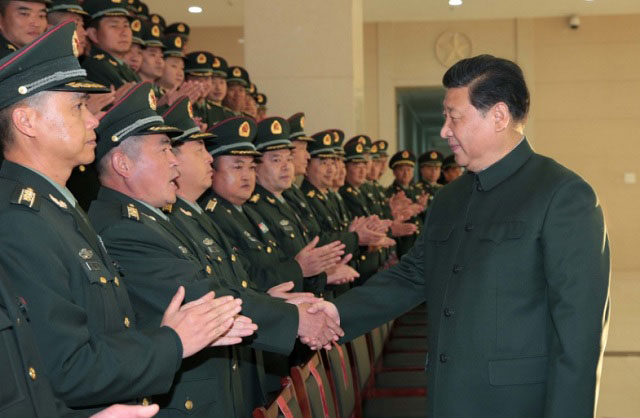
Beijing, China | AFP | China will fiercely protect its sovereignty against “any people, organisation or political party”, President Xi Jinping warned Tuesday, as the country celebrated the 90th anniversary of its military.
The message comes as the ruling Communist Party (CCP) faces political resistance in semi-autonomous Hong Kong, where many locals fear Beijing is tightening its grip, and in self-ruled Taiwan, which China views as a rebel province awaiting reunification.
The Asian giant is also mired in several bitter border disputes with its neighbours, including an ongoing stand-off with India over territory on China’s border with Bhutan.
“We will never allow any people, organisation or political party to split any part of Chinese territory out of the country at any time, in any form,” Xi told an audience of CCP and People’s Liberation Army (PLA) officials gathered at Beijing’s Great Hall of the People, who broke out into applause.
“No one should expect us to swallow the bitter fruit that is harmful to our sovereignty, security or development interests,” he said.
While China formerly followed a strategy of “hide your strength”, it has begun to indulge in more frequent, pointed demonstrations of its power.
On Sunday it held a rare military parade in Inner Mongolia in which Xi stressed the need to build a world-class army loyal to the CCP, and capable of “defeating all invading enemies”.
In Hong Kong in June, Xi helmed the largest military parade there in decades to mark the 20th anniversary of the former British colony’s handover to China.
The country in December also sailed its first aircraft carrier near Taiwan, where the ruling political party has angered Beijing by refusing to acknowledge that both sides are part of “one China”.
The ship was on its way to the South China Sea, where Beijing has pursued claims on territory — despite partial counter-claims from nations such as the Philippines and Vietnam — by building military facilities and conducting naval exercises.
– ‘No wavering, no hesitation’ –
Since coming to power in 2012, Xi has trumpeted the need to build a stronger combat-ready military, while leading efforts to centralise the Communist Party’s control over it.
Maintaining control is key for Xi ahead of a crucial party congress later this year, at which he is expected to further consolidate his grip on power.
In his speech Tuesday, the president stressed that “there shall be no wavering, no hesitation, and no ambiguity” in the PLA’s duty to “unswervingly adhere to the Party’s absolute leadership”.
China has for some time been engaged in a modernisation of its once-backward armed forces, seeking military clout commensurate with its economic might.
As part of that effort, it has made major investments in building up its capabilities, particularly in its navy, where it seeks the ability to project force into the far seas.
But a major Achilles heel for the PLA is that it has not fought a real battle since a war with Vietnam in 1979, and has a questionable mastery of modern military techniques, according to some Western experts.
James Char of the Institute of Defence and Strategic Studies at Singapore’s Nanyang Technological University, said the army “lags behind” those of other major powers.
But he added that recent reforms have at least “gradually shifted it away from a purely land-based outfit (more defence-oriented), to one that is more joint and able to project power increasingly further away from Chinese shores”.
 The Independent Uganda: You get the Truth we Pay the Price
The Independent Uganda: You get the Truth we Pay the Price





